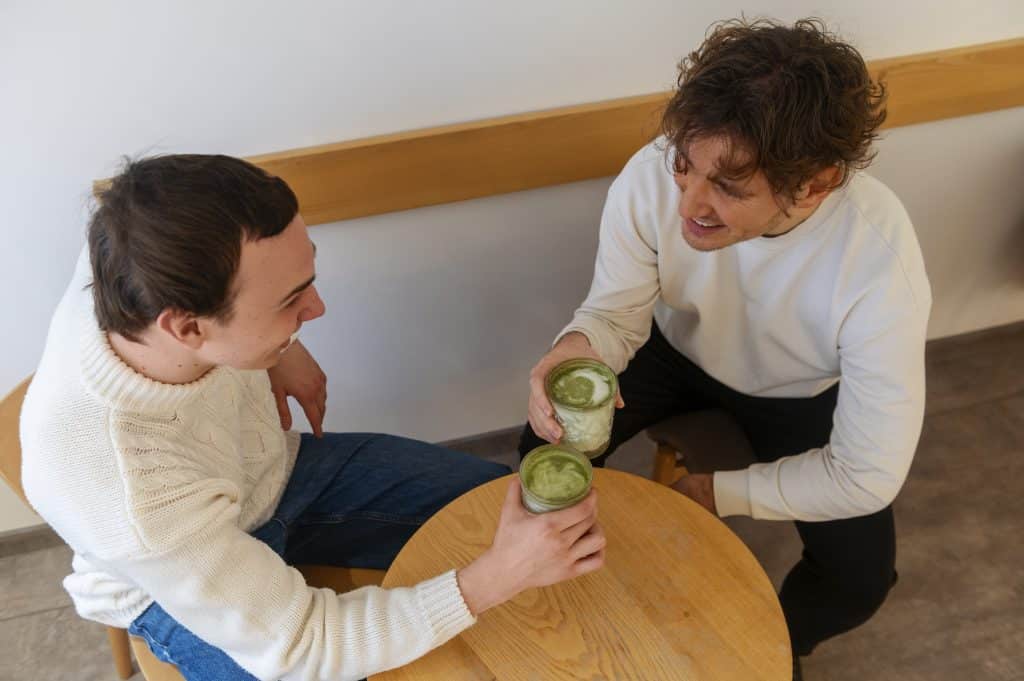In today’s fast-paced world, mental health often takes a backseat to the stresses of everyday life. Yet, amidst the chaos, a surprising remedy for mental wellness has emerged: kindness. Self-care, therapy, and medication are essential, but small acts of kindness are gaining recognition for improving mental health.

The Growing Importance of Mental Health and Acts of Kindness
Mental health issues like anxiety, depression, and stress have reached alarming levels globally. According to the World Health Organization, the pandemic only exacerbated these problems, with many people struggling to maintain their emotional balance. In response to these rising concerns, research has begun to focus on simple interventions—such as kindness—that could help alleviate some of the burden of mental health disorders.
We now recognize small acts of kindness, whether directed at others or ourselves, as powerful tools for improving mental health, rooted in compassion and empathy, rather than just mere “nice gestures.” This approach doesn’t just benefit the person receiving the kindness; it also has profound effects on the mental well-being of the person performing the act.
The Science Behind Kindness and Mental Health
Recent studies have shown that performing acts of kindness triggers the brain’s reward centers, releasing feel-good chemicals like oxytocin, serotonin, and endorphins. These neurochemicals play an essential role in regulating mood, reducing stress, and fostering feelings of happiness and satisfaction.
A study by the Greater Good Science Center at UC Berkeley found that when people engage in acts of kindness, they experience an increase in positive emotions and overall mental health. The release of oxytocin, often referred to as the “love hormone,” is linked to stronger social bonds and a sense of connection to others. This connection reduces feelings of loneliness and isolation—two major contributors to mental health struggles.
Furthermore, acts of kindness can help combat the “fight or flight” response that is often activated in times of stress. When we do something kind for others, we shift our focus away from our own anxieties, providing a mental break from negative thinking and allowing us to reframe our perspectives.
3 Emerging Trends in Kindness and Mental Health
- Kindness Challenges: One emerging trend is the rise of kindness challenges, where individuals are encouraged to perform a certain number of kind acts over a specific period. These challenges have spread through social media platforms like Instagram and TikTok, with people sharing their experiences and inspiring others to do the same. The idea is simple: as kindness spreads, it creates a ripple effect, encouraging more people to participate and improve their mental health in the process.
- Kindness in the Workplace: As the workplace becomes an increasingly stressful environment, businesses are beginning to incorporate kindness programs to boost employee morale and reduce burnout. For example, some companies have started implementing “kindness days,” where employees are encouraged to engage in acts of kindness, either towards their colleagues or within the community. These programs not only improve relationships at work but also enhance mental well-being by fostering a positive, supportive environment.
- Self-Kindness: While showing kindness to others is important, self-kindness is an equally significant emerging trend. Self-compassion, the practice of treating oneself with the same kindness and understanding as one would a friend, is linked to reduced levels of anxiety and depression. People are learning to be kinder to themselves by practicing positive self-talk, letting go of perfectionism, and embracing mistakes as part of the human experience.
How to Incorporate Small Acts of Kindness into Your Daily Routine
Now that we understand how kindness can improve mental health, it’s time to explore how to make it a part of our everyday lives. Here are some practical ways to incorporate small acts of kindness into your daily routine:
1. Compliment Someone Each Day
Offering a simple compliment, whether to a colleague, friend, or even a stranger, can create a moment of connection and brighten someone’s day. This act doesn’t require much effort but has a profound impact on the person receiving the compliment.
2. Volunteer Your Time
Volunteering, whether it’s helping at a local food bank or mentoring someone in your community, provides a sense of fulfillment and purpose. The act of giving back not only benefits others but also boosts your own mental health by fostering a sense of gratitude and empathy.
3. Be Present
In a world full of distractions, simply being present for someone—whether it’s listening to a friend who needs to talk or offering a helping hand—can make a huge difference. The presence of kindness fosters emotional support and deepens relationships, reducing feelings of loneliness.
4. Practice Gratitude
Kindness doesn’t always have to be directed outward. Taking the time to reflect on things you are grateful for each day can shift your perspective from a negative mindset to one focused on the positive. Gratitude has been shown to improve mood, reduce stress, and promote overall mental well-being.
5. Forgive Yourself and Others
Forgiveness is a powerful act of kindness, both towards others and yourself. By letting go of grudges and forgiving past mistakes, you can free yourself from emotional burdens and negative thought patterns. Practicing self-forgiveness allows you to embrace growth and healing, fostering a kinder relationship with yourself.
The Mental Health Benefits of Small Acts of Kindness
The benefits of incorporating kindness into your life extend beyond improving mood. Here’s a look at the broader mental health advantages:
- Reduced Stress: Acts of kindness help lower cortisol levels, the stress hormone, making it easier to cope with daily pressures.
- Improved Self-Esteem: Helping others or being kind to oneself can increase feelings of self-worth, leading to greater confidence.
- Enhanced Social Connections: Kindness fosters a sense of belonging, which is essential for mental well-being. Strong social bonds are a buffer against loneliness and depression.
- Better Emotional Regulation: Kindness practices allow individuals to manage their emotions better, leading to greater emotional resilience.
Conclusion
Incorporating small acts of kindness into your life doesn’t just help others—it also has profound, lasting effects on your own mental health. Whether you’re performing a simple compliment, volunteering your time, or practicing self-compassion, kindness is a powerful tool in managing stress, improving relationships, and fostering emotional resilience. As we continue to navigate the challenges of modern life, kindness will undoubtedly remain an essential part of the journey toward better mental health.
References
- Greater Good Science Center. (n.d.). The science of kindness. University of California, Berkeley. Available at: https://greatergood.berkeley.edu (Accessed: 7 August 2025).
- Oxford University Press. (2020). The benefits of kindness for mental health. Oxford Academic. Available at: https://academic.oup.com (Accessed: 7 August 2025).
- Harvard Health Publishing. (2021). Kindness and health: The power of giving. Harvard Medical School. Available at: https://www.health.harvard.edu (Accessed: 7 August 2025).









